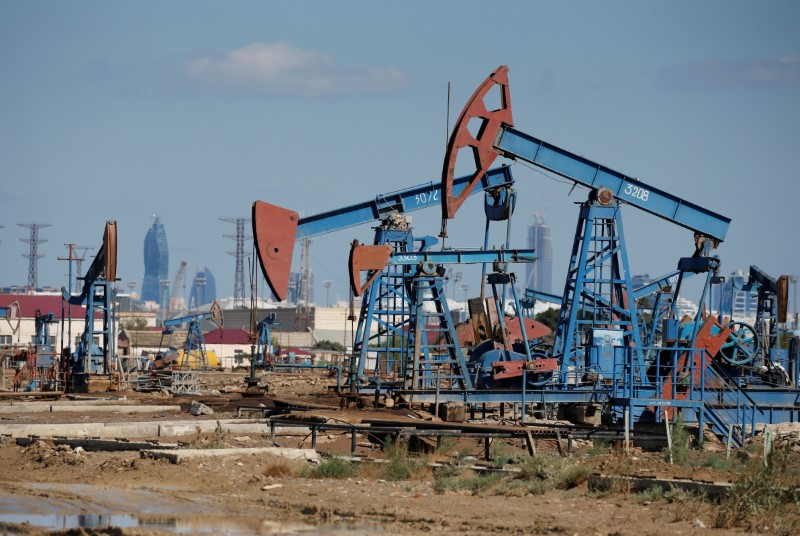By Henning Gloystein
SINGAPORE (Reuters) - Oil markets remained tense on Thursday on concerns over a military escalation in Syria, although prices remained some way off Wednesday's highest since late 2014 as bulging American supplies weighed.
Ongoing trade disputes between the United States and China also kept markets on edge, traders said.
Brent crude futures were at $72.25 per barrel at 0250 GMT, up 19 cents, or 0.3 percent from their last close.
U.S. WTI crude futures were at $67.010 a barrel, up 28 cents, or 0.4 percent from their last settlement.
In China, Shanghai crude futures were also up, rising 9 yuan to $427.2 yuan ($427.20) per barrel, with record volumes traded on the product that was only launched in late March.
Both Brent and WTI hit their highest since late 2014 of $73.09 and $67.45 per barrel on Wednesday, respectively, after Saudi Arabia said it intercepted missiles over Riyadh and U.S. President Donald Trump warned Russia of imminent military action in Syria.
"Geopolitical risks outweighed an unexpected rise in inventories in the U.S.," ANZ bank said on Thursday.
Ongoing concerns of a prolonged trade dispute between the United States and China are also keeping markets on edge.
China lashed out at the United States on Thursday saying that the trade disputes, in which both sides have threatened to impose tariffs on imports of several products, were "single-handedly provoked by the U.S." and that Beijing was prepared to escalate the spat if Washington did not back off from its threatened import tariffs.
The Chinese Commerce Ministry also said there had been no bilateral negotiations with the United States on the trade frictions.
Although markets are tense, supplies remain ample especially due to the United States.
U.S. crude oil inventories rose by 3.3 million barrels to 428.64 million barrels.
Meanwhile, U.S. crude oil production last week hit a fresh record of 10.53 million barrels per day (bpd), up by a quarter since mid-2016.
The United States now produces more crude than top exporter Saudi Arabia. Only Russia, at currently just under 11 million bpd, pumps out more.
